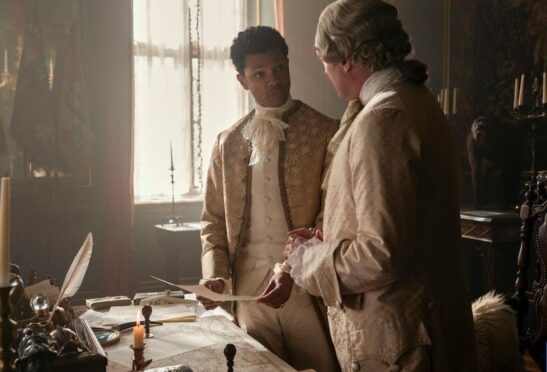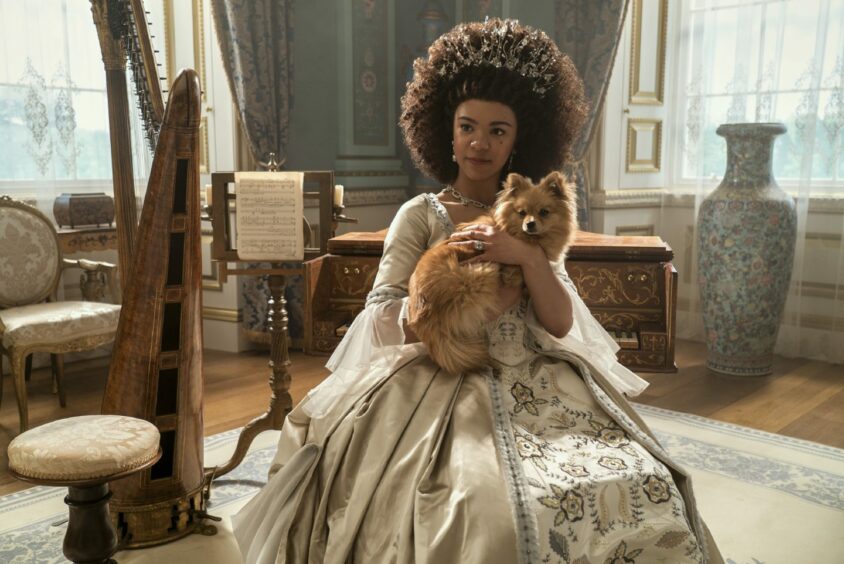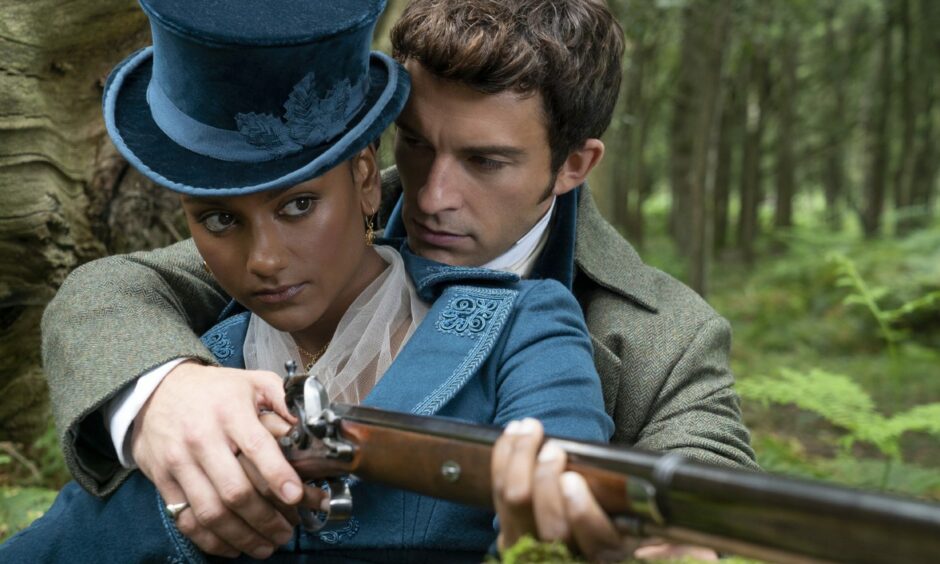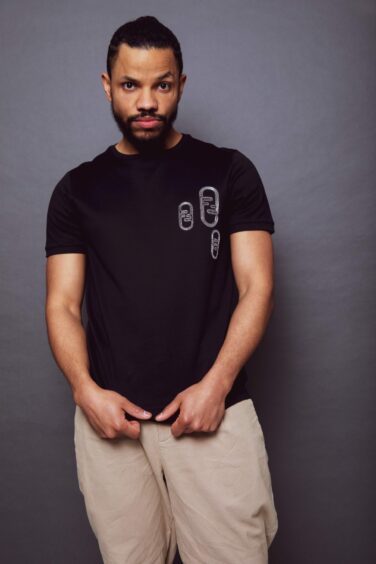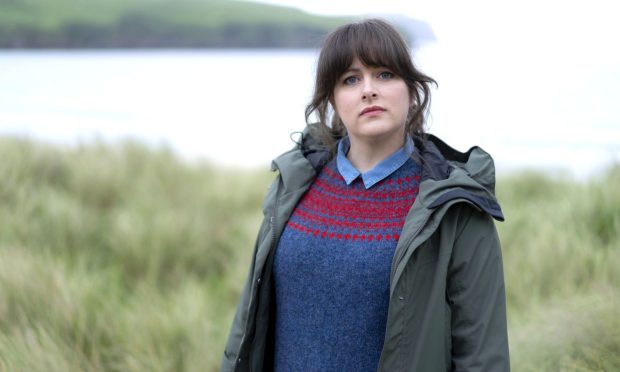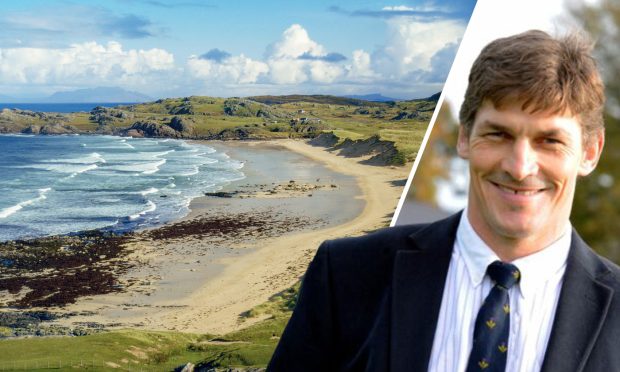Tunji Kasim is remarkably calm, given he’s just been catapulted to fame and turned into a period drama heartthrob overnight.
This isn’t just any interview, this is the interview which Tunji’s mum will be looking out for.
You can take the boy out of Kincorth, but to appear in The Press and Journal is clearly considered a benchmark in the family.
“My mum has been so excited, she kept asking me when I’m doing this interview,” he says, a big grin on his face.
Tunji returned to the north-east from Nigeria when he was 12, and his dedicated drama teacher at Bridge of Don Academy clearly recognised star potential.
From touring with the Royal Shakespeare Company to starring in BBC drama, Shetland, it’s been an impressive career thus far.
But Tunji’s latest role in Queen Charlotte: A Bridgerton Story, could well mark the turning point.
A prequel to the insanely popular Netflix series, it follows the marriage of young Queen Charlotte to King George.
With serious subject matters such as mental health and diversity, Tunji has grabbed the opportunity with both hands.
But he’ll never forget where he has come from, or the school drama teacher whose critique means more than fame.
From Aberdeen to Nigeria
“I was born in Aberdeen; my mum wanted to have one of her kids in Scotland as my two big sisters were born in Nigeria,” says Tunji, and you can tell he’s been told this story many times before.
“Mum grew up near Auchenblae, she was a farmer’s daughter and she married a Nigerian.
“My dad was a research fellow and lecturer at Aberdeen University, having previously studied there for his PhD in economics.
The family returned to Nigeria after Tunji was born, and he believes both Scottish and Nigerian culture have a common strand.
“Both cultures have a performance to them,” says Tunji.
“Nigerians love a performance, Scots do as well with things like Highland dancing.
“I drew from that, I have both of those cultures in my blood.
“Neither of my parents are artists, but if it came from anyone it came from my mum.
“She retired from Arduthie Primary School in Stonehaven around five years ago, but she loved to sing and she was part of the choir.”
Humble beginnings
Tunji’s first foray on to the stage was not particularly remarkable, after he played a “nameless” disciple in a production of Jesus Christ Superstar, during a brief stint at Mearns Academy.
But after the family moved to Kincorth, Tunji was taken under the wing of drama teacher Irene Adam, when he started at Bridge of Don Academy.
“She really put the idea in my head that acting could be a thing, she saw something in me,” says Tunji.
“The first play I ever did was The Talented Mr Ripley, and that was a fantastic experience.”
Tunji admits to never having watched Bridgerton before auditioning for the role of Adolphus.
Difficult conversations
“Period stuff wasn’t really what I was looking for, but having read the first scene, I knew I had to do it,” he says.
“Adolphus is a man of his times.
“It’s easy to judge him in 2023, but he did what he felt was essential for the betterment and the good of the people he ruled.”
Gripping plot, uncomfortable period costumes and sweltering in original horse-drawn carriages during filming is not for the faint hearted.
But Tunji believes in what the story can achieve long-term, especially when it comes to diversity in period dramas.
Importance of diversity
“There is an element of artistic licence taken with the interpretation of Queen Charlotte and the time period she lived in,” he says.
“These are clearly stories which we as a western culture want to keep telling, especially in the UK.
“And if we want to keep telling them in this day and age where diversity and inclusivity are far more important than ever, it’s only right that actors of other ethnicities should be involved.
“The show has detailed conversations about ethnicity and the tensions created in society, especially royal society.
“We’re not pretending racism didn’t exist, we’re having a conversation around it while also introducing as many diverse actors playing these parts as possible.”
Queen Charlotte also takes a look at mental health, for King George was referred to as “the mad king”.
“Often King George was laughed at; we’re looking harder than ever at having open and public conversations around mental health,” says Tunji.
“People do not carry the same stigma or embarrassment by admitting they have mental health issues.
“Hopefully this once again opens that door and allows people to lean into those conversations a bit more.
“To empathetically look at people, even historical figures like King George and the struggles they are going through.”
As for the raunchy scenes which Bridgerton is famed for, Tunji believes that Queen Charlotte frames intimacy in a different way.
Does his character enjoy romance?
Perhaps, but you’ll have to watch the show to find out.
Queen Charlotte: A Bridgerton Story is out now on Netflix.
